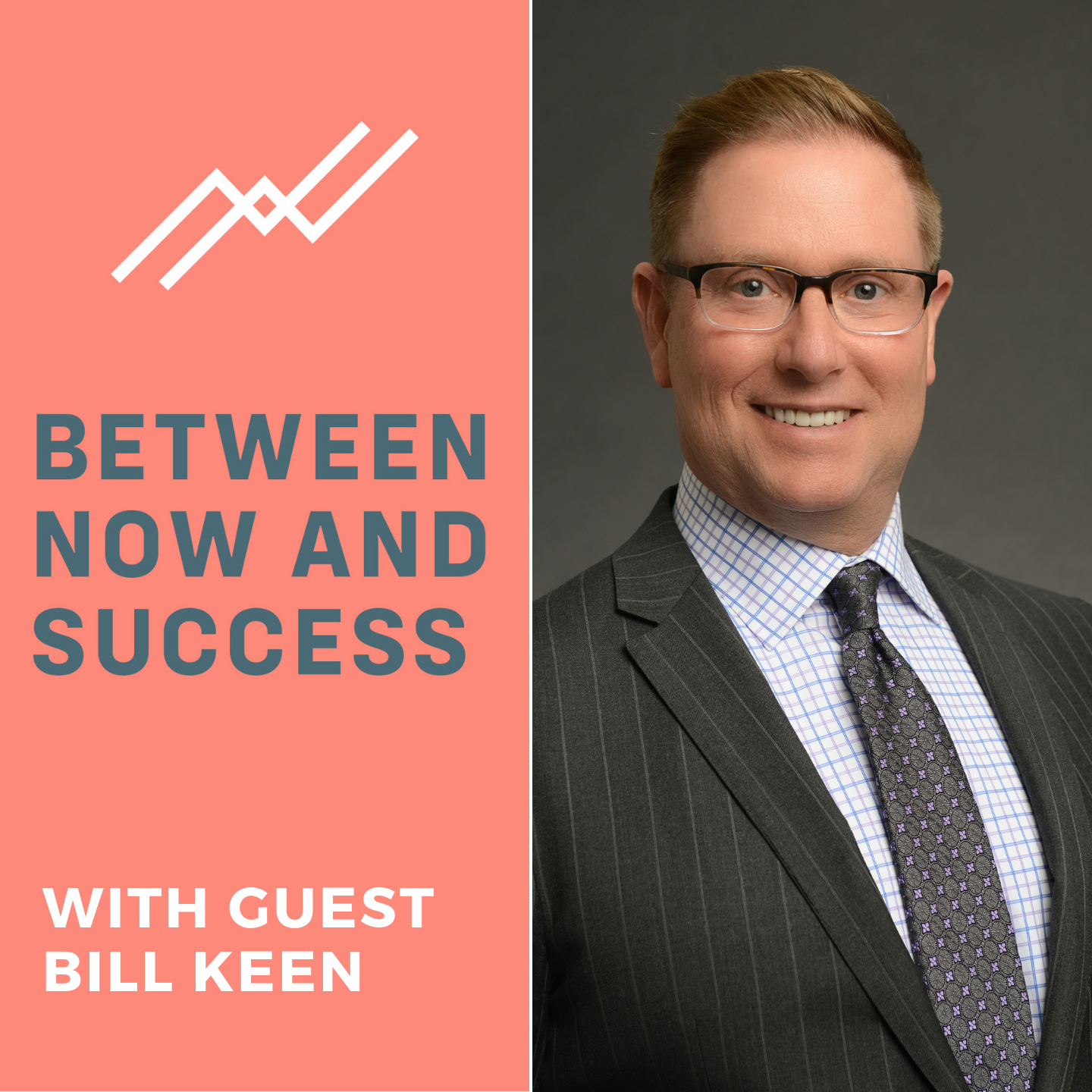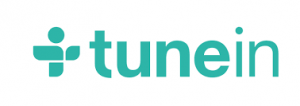Seminars work. I’ve had multiple advisors on my podcast in recent months who are all killing it with seminars. In fact, today’s podcast guest, Bill Keen, raised $90 million in new AUM last year from his seminars. Sure, it seems old school in the age of Facebook, YouTube, and Zoom, but people still value human to human live contact. You can only Google, click, and swipe so much before you just want to hear an actual person give you some good, solid information about how to live the best life possible with your money. There’s more than one way to create an effective seminar program. Here are a few I’ve seen.
- Target people of a certain wealth.
- Market just to near retirees at certain companies.
- Piggyback on local educational institutions and hold adult education workshops.
- Plug into pre-packaged programs similar to the program offered by my recent podcast guest David Bach.
If you’re behind the curve on seminars and you aren’t sure how to start, my guest today, Bill Keen, is going to help you catch up. Bill’s firm, Keen Wealth, has almost half a billion dollars in AUM, and seminars have been pivotal to Bill’s success. On this episode, Bill details the 5-step process he used to perfect his seminars. Yes, there’s more to it than just slapping together a good PowerPoint. But if you commit to Bill’s process and throw in some personal touches, you’ll be on your way to grabbing an audience and growing your client base.
5-Step Process
These steps will help you build a seminar marketing program that delivers a high return on your investment.
1. Have a belief system.
Many advisors are so “middle of the road” that they don’t want to take a stand on issues for fear of turning off potential clients. But not taking a strong stand is the sign of a weak advisor. Nobody wants to work with an advisor who doesn’t have a strong opinion on important issues. “You’ve got to be prepared to have a stance and a belief system about how things work and what you’ve seen that has worked and the things you think don’t work,” Bill Keen says. “There’s a whole process that I go through where I ask myself again every year, ‘What do I believe about this business? What do I believe about the value we bring to the table? What do I believe about what clients need, what they want, and then what they need to get to their destination as efficiently as possible?’” When you take a stand, you’ll repel some people—and that’s exactly what you want to do. You’re not trying to get the whole country to like you. You just need 100 – 150 great clients per advisor who connect with your point of view.
2. Commit.
No, seminars are not a panacea that will turn your firm around overnight. “I think it’s human instinct to want immediate gratification and immediate results,” Bill says. “What I realized pretty early on was, this is about staying power. It’s about being ever present.” For Bill, seminars aren’t a hard sell either. Many firms tell clients that their events are free … as long as they bring a friend or family member who isn’t a current client with them. Keen Wealth doesn’t do that. Bill believes that, in the long run, the quality of education he and his team are providing are worth the investment in the events themselves and associated marketing costs. Eventually, lightning will strike. Or, in Bill’s case, hail will fall. “Most firms aren’t spending a whole lot of their total top line revenue on marketing,” he explains. “But it’s just been my style to provide education to folks over the course of some number of months or years, and I understand that the timing is going to be important. For instance, I was not interested in solicitations for a new roof for my house. And then the hail storm came. The next e-mail I got about a new roof, I was very interested. The timing was right.” The best way to nudge that timing along is to be consistent in all aspects of your marketing. Bill publishes a new episode of his podcast every other week, with blog posts in between. He’s also engaging his audience regularly on social media and hosting over 60 events annually around his home base of Kansas City. “We have prospects that come in, and it’s pretty amazing, they’re relatively pre-sold on the process,” he says. “They say, ‘I’ve been listening to you. I feel like I know you.’”
3. Start with your current client base.
As you’re looking ahead, it’s important not to neglect the clients who got you where you are today, and with whom you plan to keep working throughout the life of their financial planning. If you use your client base as a jumping off point, you’ll also probably have an easy time coming up with a short list of topics that will be relevant, helpful, and attractive. And if your clients are engaged, eventually the word will get around to prospects. “The reality is, clients will bring people to events,” Bill says. “Even if you just say, for the next 12 months, I’m going to hold one seminar a quarter and I’m going to feed some value back into my client base via these seminars and get rolling here.” Once you get rolling, Bill recommends that you keep rolling. The number of events his team holds around Kansas City means that he never has to worry about “gearing up” – Keen Wealth is always in presentation mode, ready to dish out high quality info with a side order of Kansas City barbeque for attendees.
4. Guide prospects into your funnel.
“Of course, we’re not doing seminars just to educate everybody in Kansas City,” Bill says. Bill tries to diffuse any “selling” vibes that might turn off prospects in attendance right at the beginning of his presentation. He sets up the presentation by saying something along these lines: “Some of you will end up coming in and seeing us and walking through a financial planning process where you evaluate if we could be a good firm to work with. We also evaluate if there could be a fit for us to work with you. Some of you will just come and will learn tonight, get value from this, which I promise that you will. And you won’t come see us, and maybe we’ll never see you again, and that’s okay too. But you will be offered the opportunity to come in and sit down with a couple of our planners and begin to put together a plan and see if there’s something we can help you with.” Then, at the end of the seminar, Bill distributes questionnaires asking attendees to rate the presentation. Bill says most folks are gracious enough to turn those in, probably because Bill has already taken off some of the pressure before the seminar has even started. Respondents get entered into Bill’s CRM funnel so that his team can follow-up with phone calls and emails starting the next day. Bill carefully manages these processes not just as an advisor, but as a CEO working with group of talented executives who are growing the business while the advisors do the advising. “We’re up to 18 employees at the firm,” he says, “seven of which, if you include myself, are planners. I do sit in on meetings with some legacy clients. We also have a CIO. We have a CMO, which we recruited from one of the largest RIAs in the country, and then we have our operations director as well. So, we’ve got a nice little C-suite of executives here, for the size of the firm we are.”
5. Focus on the right numbers.
And the payoff for all of Bill’s hard work? Remember, I said at the top that seminars aren’t a quick fix. And Bill’s data shows that converting prospects takes time: 9 months for referrals, and up to 36 months for non-referrals who come to Keen Wealth “cold” via seminars or another marketing initiative. Some firms don’t bother tracking this kind of data right away because, as Bill says, “they don’t feel like these numbers mean anything yet. ‘I’ve only got six months of numbers. It’s really a pain in the rear to create these dashboards and to create these numbers, and they’re not giving us anything significant yet.’” But CEO Bill understands what these frustrated advisors don’t: this data stream is a leading indicator that’s pointing Keen Wealth towards more growth. Because Bill has monitored how these seminars produce new clients over time, he knows that if he keeps doing them, he’ll get results. “It’s so easy to just look backwards and say, ‘Well, we raised $90 million last year. That’s awesome, that’s great,’” Bill says. “But assets raised is a lagging indicator. That’s just what happened. What we want to know about is what are the leading indicators? What are the things that we had to do to raise that $90 million last year? What were the things that made it happen? And if you do this over the course of years, you’ll start to build some data that has predictive value. And I would contend you have a business that’s worth more, from a valuation standpoint, because you have real metrics around what drives the success of the business.”
Next Steps
- Bill mentioned that he got some good insights on seminar-building from my conversation with Steve Cassaday. Steve has grown to over $2.7 billion in AUM using seminars and an unorthodox – but effective – approach to building financial plans. Listen to that episode for some more ideas on how to develop your own programs.
- Every year, Bill and his team host a holiday breakfast for clients and friends of the firm where they review the previous year in finance and make some observations about where the market could be headed. You can click here to watch Bill’s most recent holiday seminar or listen to the audio as a podcast. This is a good example of the kind of client-focused events that Bill believes lead to more prospects.
- Check out the excellent podcast I co-host with Bill called, “Keen on Retirement”.
Resources
– Keen on Retirement Check out Bill Keen’s blog and podcast homepage. – Keen Wealth Advisors Visit Bill Keen and his team online. – “The Excellent Investment Advisor” by Nick Murray Bill Keen says this classic was very influential on him early in his career. I have a copy on my shelf too! – “Factfulness” by Hans Rosling Need some positivity? Bill keen recommends this book that argues the world is a better place than we tend to think it is. – The ROL Index A tool Mitch Anthony and I developed to help advisors measure their clients’ well-being in 10 aspects of life. – Values Clarification Toolkit Click here to download this FREE tool and start living your values.









